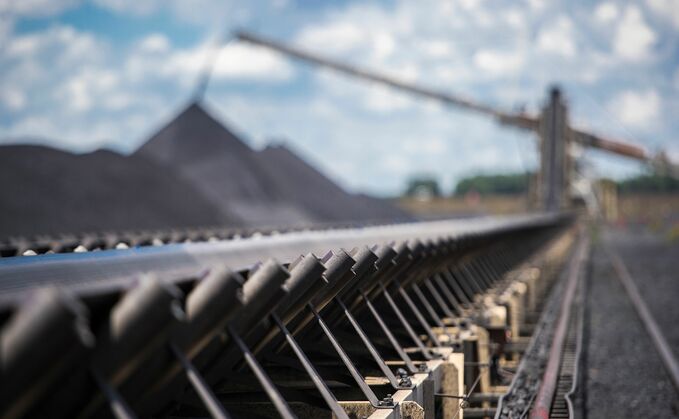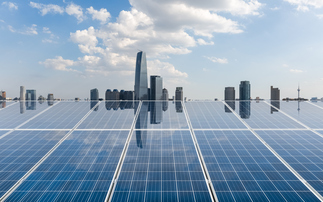
Glecnore's Goedgevonden coal mine in South Africa | Credit: Glencore
World's largest mining company accused of basing its climate targets on emissions pathway that is inapproporiate for coal producers
Glencore is facing legal action over its climate targets, after a coalition of environmental groups in Australia lodged a complaint with regulators that claim the world's largest mining company is incorrectly accounting for the emissions generated by its coal business.
Environmental law charity ClientEarth, which is supporting the multi-group complaint lodged with Australian regulators, confirmed the details surrounding the suit this morning. The crux of the complaint is that the British-Swiss mining firm's emissions claims and pathways are founded on pathways not designed for coal companies.
With more than 90 per cent of Glencore's emissions generated from its coal business, the company's reliance of a decarbonisation pathway "not applicable to its emissions-intensive coal business" undermines the credibility of its climate statements, the complaint claims.
The case, which has been brought against Glencore by the Environmental Defenders Office, on behalf of The Plains Clan of the Wonnarua People (PCWP) and Lock the Gate Alliance, has been lodged with two Australian regulators: the Australian Competition and Consumer Commission (ACCC) and the Australian Securities and Investments Commission (ASIC).
ClientEarth climate lawyer Maria Petzsch said that Glencore's "misuse of net zero science" had the net result of downplaying its "climate-damaging plans" in Australia. "It shouldn't fall upon shareholders and the public to spot this critical omission in Glencore's climate claims, whether it is a mistake or sleight of hand," she said. "Either way the company needs to be upfront about why its coal-dominated business is somehow exempt from the urgent need to decarbonise."
If the Australian authorities find that Glencore has violated the Corporations Act 2001 or Australian consumer law, the company could face financial penalties in addition to injunctions which would prevent it from making such claims in the future, ClientEarth said.
Unlike some other mining majors who have sold off their thermal coal production assets to other companies following investor pressure, Glencore has rejected calls to divest from emissions-intensive assets.
The miner, which has pledged to reach "net zero total emissions by 2050", has argued it is more "environmentally responsible" for it to slowly wind down production of its most carbon intensive assets over time rather than sell them to a firm that operates without a net zero strategy in place.
ClientEarth said it has also called on the UK's Financial Conduct Authority to work with ASIC to investigate Glencore's decarbonisation statements, given the company is listed on the London Stock Exchange.
Glencore is also major investor in plans to build a major battery production facility in Northumberland.
Responding to the complaint, a spokesperson from Glencore said: "We will review the materials and claims made by the EDO and their clients and are happy to assist ASIC and the ACCC with any enquiries they may have on these matters."
They added that Glencore's climate change strategy covered its "global portfolio of operations" and pointed out that the firm was Australia's largest producer of coal, cobalt and zinc, as well as a leading producer of nickel and copper.
In an interview with BusinessGreen this year, the International Council for Mining and Metals (ICMM) confirmed it was working with the Science-Based Targets Initiative (SBTi) to to create an emissions accounting framework for the mining sector.
Want to find out more about the net zero transition and how businesses are seizing the opportunities on offer? Sign up now for the Net Zero Festival, which will take place in London on September 28th and 29th.









